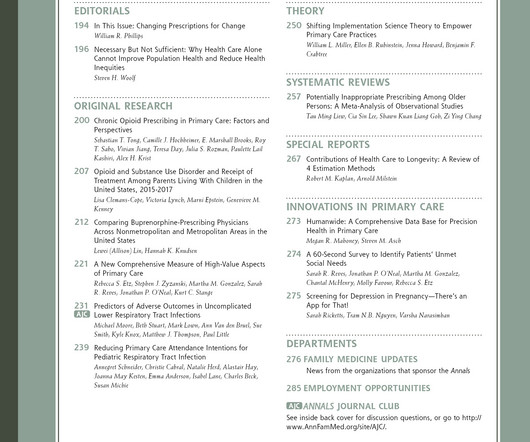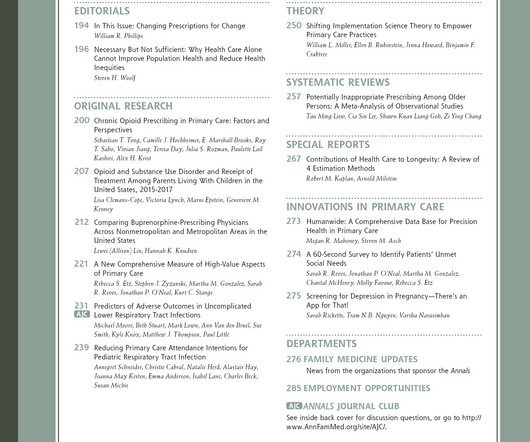Gathering Family Perspectives on Integrated Care
Integrated Care News by CFHA
MARCH 12, 2025
I am sharing a few excerpts from a family interview I conducted a few years ago that illustrates how integrated behavioral health enhances the four primary care functions. They have that individual there that can provide those services and then potentially have them, you know if they need to get services.












Let's personalize your content